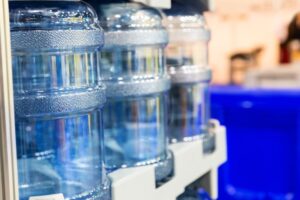Which Salt is Best For Water Softeners?
Hard water can be a problem for many households. It can cause dry skin and stained clothing, as well as buildup in appliances that makes them less efficient. Using the right salt can help to reduce or eliminate these problems.
(Searching in Google “chlorine testing drinking water“? Contact us today!)

There are several different kinds of salt used to soften water, and a few of them work better than others. The type of salt you use is a factor that affects the lifespan and performance of your water softener, as well as how much you’ll have to pay to maintain it.
Which Salt is Best?
There is a wide variety of salts on the market, including sea salt and rock salt. Each has a slightly different level of purity and is recommended for specific purposes.
Generally speaking, it is best to use evaporated salt for most applications. It is the purest form of sodium chloride and is less likely to cause issues such as salt bridges, grime buildup in your brine tank, or other problems that can make the water-softening process unsatisfactory.
The other option is potassium chloride. While it does not give as good a result in the softening process, it can be a healthy alternative to sodium chloride for people with certain medical conditions or who are undergoing treatment for high levels of sodium in their bodies.
Some brands of water softener salt also contain additives that are designed to protect your plumbing system and combat other contaminants. These include a range of additives that are effective against iron and other minerals that can cause problems in your home.
Pellet Salt vs Crystals for Water Softeners
There are two main types of salt that are used to soften water: pellets and crystals. Both are a mixture of salt and sodium chloride, though pellets have a higher concentration of both.
Both are effective in softening hard water, but pellets tend to be more expensive than crystals. This is because pellets need to be processed and packaged, while crystals are a much cheaper alternative.
How many salts Do You Need?
The amount of salt you need to soften your water will depend on the size of your household and how hard your water is. Typically, larger households will need more salt than smaller ones.
When the salt levels in your water tank fall below half full, it’s time to add more. This will ensure that the system has enough salt to effectively treat your water and avoid any potential issues such as the formation of salt bridges or a blockage in the brine tank.
How to Top Up Your Water Tank?
The best way to keep your water softener in tip-top shape is to check the salt level in your tank once a month. This is important because if your salt levels are too low, the resin won’t be able to do its job.
Another important thing to remember is to never let your salt levels fall below one-quarter full. This can cause the water inside your tank to become mushy and may damage the system over time.

